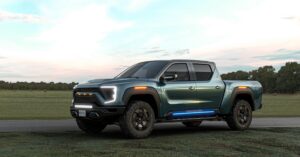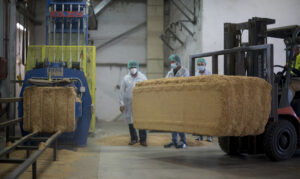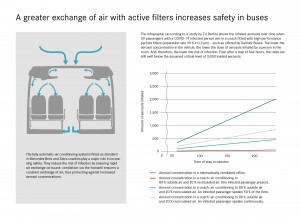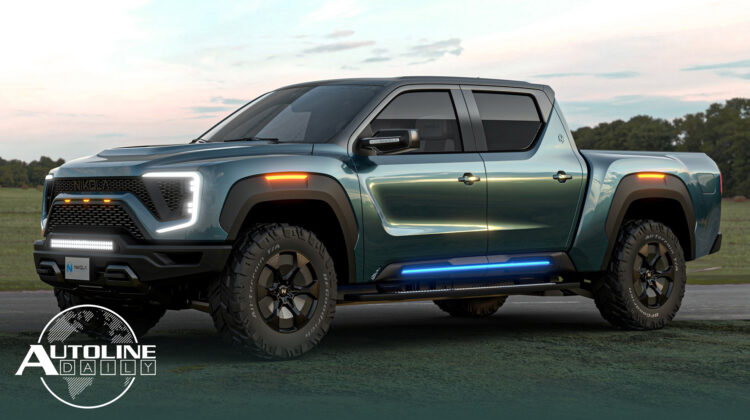
Listen to “AD #2946 – China EV Market to Take Off; GM to Make Nikola Badger in 2026; Kia Moving to EVs Faster Than Hyundai” on Spreaker.
Follow us on social media:
Runtime: 9:20
0:07 China EV Market Expected to Take Off
1:02 Market Manipulation Case Against Former VW CEO Dropped
1:37 GM to Make Nikola Badger in 2026
2:57 Fuel Cell Passenger Cars Won’t Become Mainstream
4:22 SEAT Testing Parts Made from Rice Husks
5:20 Daimler Cleaning Up Air in Its Buses
6:09 Magna Expanding Its Manufacturing Footprint
7:29 Kia Moving to EVs Faster Than Hyundai
8:13 Hummer EV Won’t Be Sold in All GMC’s Dealerships
Visit our sponsors to thank them for their support of Autoline Daily: Bridgestone, BorgWarner and Intrepid Control Systems.
This is Autoline Daily, the show dedicated to enthusiasts of the global automotive industry.
CHINA EV MARKET EXPECTED TO TAKE OFF
And we begin today in China where sales of electrified vehicles are expected to take off in the next five years. According to the China Society of Automotive Engineers, sales of electric, plug-in hybrid and fuel cells, what China calls New Energy Vehicles or NEVs for short, will hit 20% of overall all-new car sales by 2025. That’s up from 5% this year. And by 2035, they’re expected to reach 50%. The study predicts that 95% of NEV sales in 2035 will be battery electric cars, while the rest will be plug-ins. The researchers also say that carbon dioxide emissions from China’s auto industry will peak in 2028 and fall to 20% of peak levels by 2035. China is expected to sell around 1 million NEVs this year.
MARKET MANIPULATION CASE AGAINST FORMER VW CEO DROPPED
Good news for former Volkswagen CEO, Martin Winterkorn. Prosecutors in Stuttgart have dropped a market manipulation case against him. Prosecutors were investigating whether he manipulated markets by not disclosing the company’s diesel emission scandal sooner in 2015. But he’s not in the clear yet. Winterkorn is facing another criminal case in Germany for his role in the diesel cheating. The Stuttgart prosecutors dropped their investigation because Winterkorn will likely receive a harsher penalty in his other case.
GM TO MAKE NIKOLA BADGER IN 2026
Even though GM and Nikola have not signed a final agreement, it sure looks like their partnership is going to go ahead. AutoForecast Solutions reports that GM will start making the Nikola Badger pickup truck, but not until 2026. That truck will be made at GM’s Plant Zero, the new name for its Hamtramck assembly plant in Detroit. That plant will also start making an electric Chevrolet pickup truck in 2022. It will be available in both long and short wheelbase versions.
FUEL CELL PASSENGER CARS WON’T BE MAINSTREAM
There’s a lot of activity in developing fuel cell powered Class 8 semi-trucks. And it looks like we could see them delivering cargo in the near future. But what about fuel cells for passenger vehicles? On Autoline After Hours, industry expert Paul Eichenberg explained why hydrogen powered passenger cars aren’t going to become mainstream.
Paul Eichenberg
“This is something I would tell you, we probably do 150-200 expert interviews with the OEMs over the course of the year around electrification. And whenever we ask the question around hydrogen for passenger cars, I think if you look out in the next ten years, you may see ten, eleven, twelve thousand units. But it just has some challenges that I think, electrification is just going to be a simpler way to deliver. They of course use basically the same type of power electronics and everything, it’s just the sort of the fuel source. But I think from everything we’ve seen, all the work that we’ve done, it’s just there’s not a demand, there’s not an interest at the OEM level from a light vehicle standpoint that’s really pushing this technology.”
SEAT TESTING PARTS MADE FROM RICE HUSKS
Automakers testing and developing renewable materials is nothing new in the auto industry. And now Spanish automaker SEAT, which is part of the VW Group, is launching a pilot program to produce parts using rice husks. Why rice husks? Well there’s plenty of it. Around 140 million tons of rice husks are produced worldwide every year, most of which is just thrown out. SEAT is taking the husks and turning it into Oryzite, a material that can be mixed with other thermoplastic compounds. The new material is being tested on trim components in the SEAT Leon, including parts in the rear hatch, the floor of the trunk and its headliner. SEAT is currently testing the new material to see if it is as durable and safe as the materials it uses now. Not only is the new material more environmentally friendly, it’s also lighter, which can help further reduce the weight of a vehicle.
DAIMLER CLEANING UP AIR IN ITS BUSES
Bus travel has greatly reduced during the pandemic, so Daimler is cleaning up the air inside its buses. It’s now equipping its buses with multi-layer filters with an anti-viral coating to remove fine aerosols from the air. When these filters are used with the air conditioning system where fresh air is exchanged quickly, critical values considered to lead to infection are not reached. Daimler says the filters are available for all its touring buses.
MAGNA WANTS TO EXPAND MANUFACTURING FOOTPRINT
Supplier Magna is looking to expand its manufacturing footprint. As we said in a recent report, Magna has produced over 3.7 million vehicles under contract from other automakers. That all comes from its main plant in Austria, but it recently opened another facility in China and now it’s eyeing the North American market as well. Magna says the North American plant would be able to produce vehicles with any type of powertrain, but it wants to focus on battery electrics. However, for the plant to ever get off the ground, it will require contracts with at least two different companies. Magna is already making vehicles for BAIC, BMW, Jaguar, Mercedes-Benz and just announced a deal with Fisker. So, it’s not crazy to think Magna could get a couple of OEMs to sign on. And the fact that the supplier has its own EV architecture will make it even easier for companies to jump on board because they’ll have less to develop themselves. Magna’s plants in Austria and China have the capacity to build 170,000 and 180,000 vehicles, respectively, and if it opens a new plant in North America with a similar capacity, that means Magna could produce over half a million vehicles a year.
KIA MOVING TO EVs FASTER THAN HYUNDAI
Speaking of EVs, Kia wants to move into electrics faster than parent company Hyundai. The automaker says it wants 20% of its global sales to be BEVs by 2025, so it will offer 11 electric-only models by that time. Kia also wants to get into PBVs or purpose-built vehicles, like those used for deliveries or ride-hailing services. As we know, parent company Hyundai invested in Canoo to develop vehicles on its EV platform, so maybe Kia will take advantage of that partnership too. This is all part of Kia’s ‘Plan S,’ which will require a $25 billion investment to make it happen.
HUMMER EV WON’T BE SOLD IN ALL GMC DEALERSHIPS
Like other specialty models, the Hummer EV will not be sold in all dealerships. While it’s sold under the GMC brand, only about half of GMC’s dealerships have currently signed up to sell the electric vehicle. It sounds like the big roadblocks are the costs associated with upgrading a dealership to sell, service and charge up the trucks. That’s not too surprising, given our current environment and the fact that the majority of the Hummer EV variants won’t be out until 2024.
And don’t forget to join us for Autoline After Hours later this week. Joining John and Gary, is economist Charles Chesbrough, from Cox Automotive, who will share his outlook for the auto industry. So be sure to tune in this Thursday at 3PM eastern time.
But that’s it for today, thanks for watching.
Thanks to our partner for embedding Autoline Daily on its website: WardsAuto.com
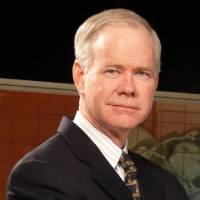
John McElroy is an influential thought leader in the automotive industry. He is a journalist, lecturer, commentator and entrepreneur. He created “Autoline Daily,” the first industry webcast of industry news and analysis.




